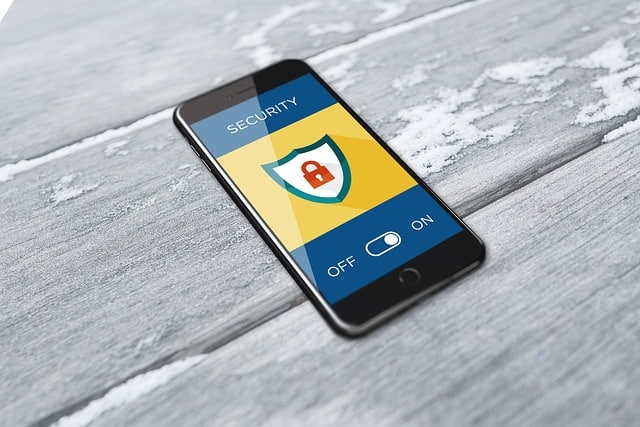The Unstoppable “Reset” Mindset
Reset is for anyone who knows the strain of balancing life on the tightrope of being everything to everyone.


Summer is the perfect time for parents to remind their children about the importance of safe online habits
As we get into the thick of summer break and parents start to run out of activities and day trip ideas, it’s inevitable that kids will be spending more time on their devices surfing the internet. Undoubtedly, they’ll be TikToking, playing Fortnite and partaking in the many apps that are sure to have their five minutes of fame throughout the remaining warm weeks in Canada.
Despite the inherent guilt parents feel, particularly mothers, for letting their kids have dedicated screen time, the internet can actually be a wonderful place for development and finding creative content that is both entertaining and educational.
By now, we are also all aware of the damaging, potential danger that lurks behind the screen, but by taking the right precautions, parents can equip their children to recognize and avoid these dangers. By using helpful tips and promoting general internet safety in your home, parents can protect their children without impeding on their independence and curiosity.

The first step in preventing any negative online experiences for your child is: awareness. It’s important to know the risks associated with increased internet access and exposure with the first and possibly most heartbreaking being: cyberbullying. It was reported in 2019, that one in four youth (25%) aged 12 to 17 years experienced cyberbullying in the previous year (Statistics Canada).
To combat this, encourage children to speak up if they encounter any issues or face online harassment. There is no problem too big or too small that you can’t fix together, and it does not hurt to continuously remind little ones to teens of this fact. This same strategy can also assist in preventing online predators that use deceptive tactics to exploit children, engaging in activities like sextortion, online grooming, and non-consensual sexting.
Advice to share with your children includes not sharing intimate content online, especially with strangers, and never clicking on links or opening attachments in unsolicited messages or accepting friend requests on apps from unknown individuals. All of us have probably been guilty of oversharing online. But our children often have a much larger digital friendship circle than us, meaning there may be malicious actors looking for information they can use. Even something as innocuous as the name of a pet, the address of their house or the fact that they’re going on holiday, these “data leaks” could be used in digital and real-world attacks.
This point also leads to the importance of having awareness about identity theft and phishing scams. As soon as your kids start registering on social media, messaging apps and email accounts they’ll be bombarded with fake messages designed to trick them into handing over sensitive personal and financial information or install malware. Many look convincing, and some could even be designed to entice with free giveaway claims.
Third-party game apps can also be disguised as trojan software that introduces children to scams, predators, and often malware. Perhaps opening one of the ‘permission to download’ dialogue boxes and showing your kids that they need permission to continue every time one of them appears on the screen is a good rule to establish in the household.
These risks and more make parental control software an increasingly attractive and much-needed prospect for parents and guardians. The right tools should strike a balance between enhancing your children’s safety and giving them the freedom to explore, learn and socialize.
Here are just some of the tips on what to look for in parental control software:

To learn more about parental control software, visit: https://www.eset.com/ca/home/parental-control-android/
Parents play a crucial role in ensuring their children’s online safety, particularly during the summer holidays and by educating children about potential risks and implementing practical safety measures, parents can foster a safer online environment.
It’s up to us adults to encourage our kids to enjoy the summer break, including a break from devices and enjoy the great Canadian outdoors. This summer lead by example and put your devices down and show your kids that there is life beyond the small screen we all have an addiction too.
Author’s Information:
Tony Anscombe is the Chief Security Evangelist with ESET, a leading global IT security company.
With more than 20 years of security industry experience, Anscombe is an established author, blogger and speaker on the current threat landscape, security technologies and products, data protection, privacy and trust and internet safety. His speaking portfolio includes industry conferences RSA, Black Hat, VB, CTIA, MEF, Gartner Risk and Security Summit and the Child Internet Safety Summit. He is regularly quoted in security, technology and business media, including BBC, the Guardian, the New York Times and USA Today, with broadcast appearances on Bloomberg, BBC, CTV, KRON and CBS.
Categories: cybersecurity threats, SMBs, company data, employee data, and security breaches.
Reset is for anyone who knows the strain of balancing life on the tightrope of being everything to everyone.

The nominations have been tallied, and the voting begins on January 10th! Look at the Family Favourites you nominated! Family Favourite Nominees 2026 Congratulations to all the nominees!

Do you remember how delightful Christmas holiday was when you were little? If the countdown to Christmas is stressing you out, it just means you’ve grown up! Read these tips to reclaim the magic of the holiday season.
